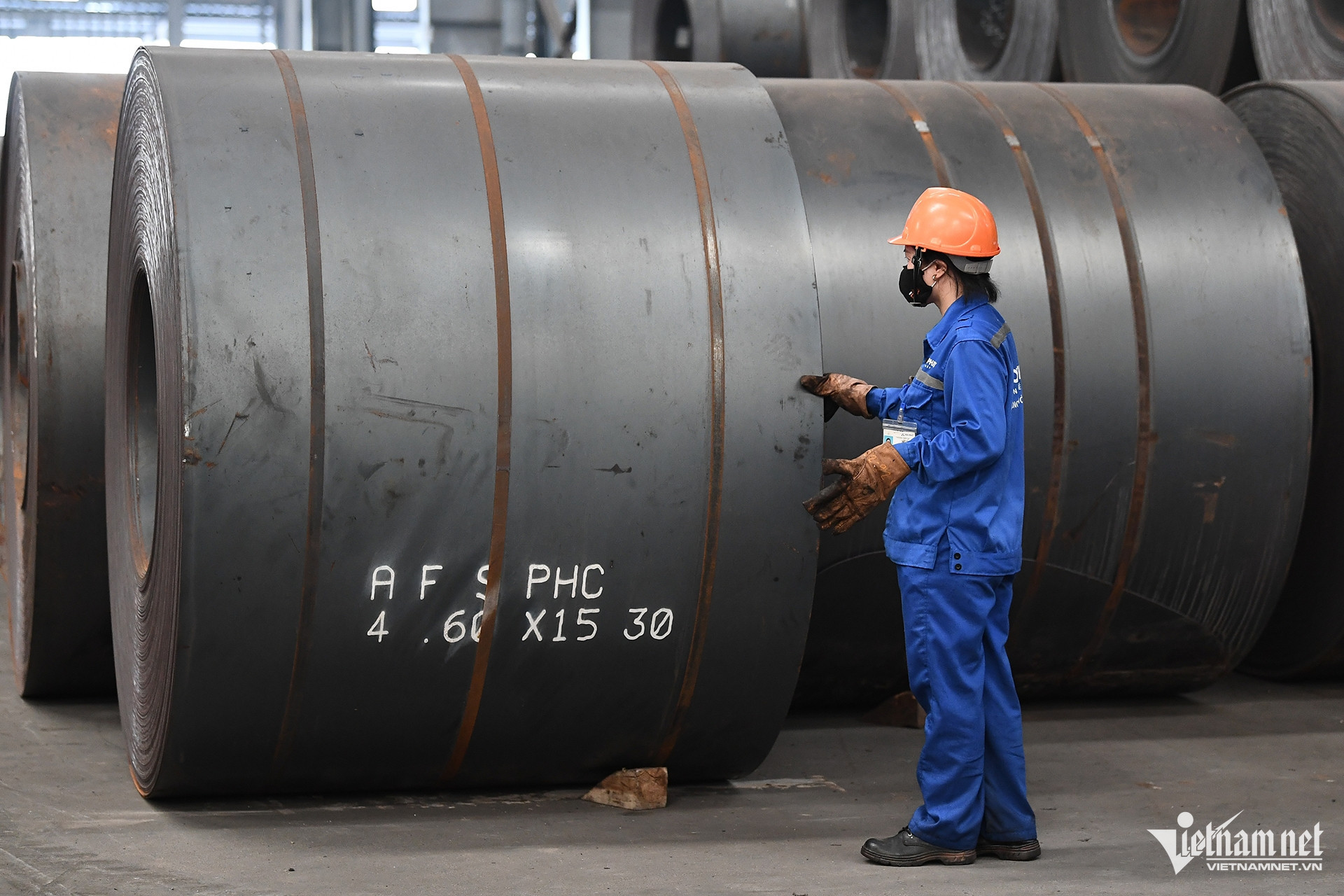Despite Vietnam's imposition of provisional anti-dumping duties on certain hot-rolled coil (HRC) steel products from China earlier this year, imports of wide-width Chinese steel have surged, raising serious concerns about tax evasion through trade loopholes.

According to customs data, Vietnam imported over 3.1 million tons of HRC in the first four months of 2025, down 15% from the same period last year. However, China remained the dominant source, accounting for 62% of the total with 1.9 million tons.
A particularly alarming trend is the dramatic increase in the import of HRC steel with widths of 1,880mm or more from China - dimensions that fall outside the scope of current anti-dumping measures.
In April alone, Vietnam imported 214,000 tons of these wide-width steel products, up 81% compared to the entire first quarter (118,000 tons).
Cumulatively, in the first four months of 2025, Vietnam imported 335,000 tons of wide-width Chinese HRC - 4.6 times higher than the 71,200 tons imported during the last six months of 2024, and a staggering 25-fold increase compared to the first half of 2024.
This surge in imports strongly suggests attempts to circumvent Vietnam’s provisional anti-dumping duties, particularly those enacted through Decision 460 issued on February 21, 2025, by the Ministry of Industry and Trade. The duties apply to flat-rolled iron or steel products (alloyed or non-alloyed), hot-rolled, with thicknesses from 1.2mm to 25.4mm, widths not exceeding 1,880mm, and with no additional processing beyond hot rolling.
Since the Trade Remedies Authority of Vietnam initiated the investigation, a notable shift has been observed in import behavior.
Traders have increasingly turned to steel products with slightly wider dimensions - 1,900mm to 2,000mm - to sidestep the duty, even though these products are technically and functionally similar to those covered by the duties.
Industry experts warn that this form of import substitution is in violation of Article 73 and Article 78 of Decree 10/2018, as well as provisions under the newly issued Decree 86/2025, which explicitly prohibits the circumvention of trade remedy measures.
Without timely intervention, analysts caution that the trend may expand further, leading to an influx of even wider hot-rolled steel products exceeding 2,000mm, thereby undermining the protective intent of Vietnam’s trade policies and harming domestic steel manufacturers.
Tam An